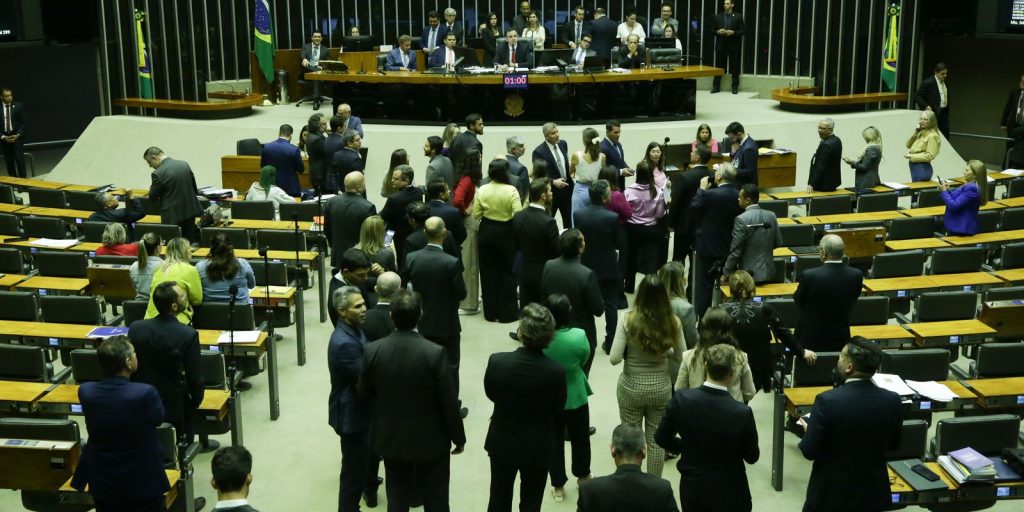There are exactly 15 days left until 2024 ends and it is increasingly evident that the underexecution of the General Budget of the Nation is an alternative move by the Ministry of Finance to guarantee compliance with the fiscal rule, which would be consolidating as a cut indirect that It would be added to the $33 billion that was announced a few weeks ago.
With cut-off to November, the accounts of the Ministry of Finance show that $406.7 billion of the $503.7 billion projected for this year have been committed, which is equivalent to 80.8% execution at that level, which falls short if one takes into account that the average for this date It was 85%.
Also read: Comptroller’s Office requested greater fiscal commitment after the fall of the financing law
On the other hand, obligations reached 71.1% ($358.1 billion) and payments reached $353 billion (70.1%); edges that are also lagging behind previous periods, where they were close to 80% in both indicators. To better explain this data, less than a month before the end of 2024, the government still has $96.8 billion to use from the items approved by Congress.
Investment left
Within these accounts, the point that draws the most attention is that of investment, since it has been one of the most repeated requests from unions and study centers to face the slowdown and points to close the year as the great sacrifice, thanks to the Government’s under-execution strategy.
Colombian pesos
iStock
Here it must be said that of the $100 billion planned for 2024, $78.4 billion (78.4%) have been committed and just over $21 billion remain pending to be allocated. For this same period in 2023, this line was at 81.1% of the execution and by 2022, when Gustavo Petro started his mandate, it was at 88%.
The sectors of social inclusion ($3.7 billion), transportation ($2.4 billion), agriculture ($2.3 billion), finance ($2.1 billion) and mines and energy ($1.7 billion); They concentrate more than 50% of the $21 billion that remains to be used. Likewise, if you look at the level of appropriations that became obligations for these five, none exceeds 31%.
José Manuel Restrepo, former Minister of Finance and rector of the EIA University, maintains that the country would be going through a scenario of forced underexecution, after the freezing of resources that was announced in the middle of the year, after the drop in tax collection and non-compliance with spending estimates.
More news: Economic perspectives 2025: to return to the path of growth
“Since more investment than operating expenses is being frozen, we go that route. It seems to me that the order of things is not to freeze investment. This means that part of the investment should not be frozen, but that a real effort would have to be made. in operating expenses. That’s where the problem is. It is not about investment,” he explained.
In this sense, Restrepo Abondano added that “in fact, investment has been falling. So, what the Government has to do is recompose its freezing agenda towards operating or payroll expenses, which is where it is really growing,” thus marking a point to correct.
If the current pace of commitments of $7.8 trillion is maintained monthly on average, at the end of this year, said line of the budget would only reach $85 billion, leaving $15 billion at the mercy of being lost in the budget gap.

Ministry of Finance and Public Credit.
Photo: CEET – Néstor Gómez
This is why Jorge Restrepo, professor at the Javeriana University, highlights that “This makes it clear that it is very difficult for the Government to structure investment projects and carry them out, that is a difficulty that all governments have had, not just this one. , but in this government it is particularly difficult in sectors such as housing, transportation or energy; in which this administration has decided to change the way it is invested,” he said.
The balance of the investment figures becomes more complicated when the obligations and payments are reviewed, which are the monies that are finally known to enter the economy, given that only $44.8 billion (44.8%) have been obligated and paid. $44.5 billion (44.5%); keeping more than $50 billion without effective use, in a context of clear deceleration.
Other news: Appointment of Daniel Mendoza as ambassador to Thailand sparks political commotion
Regarding the pending resources that would be used before the end of 2024, Professor Restrepo noted that “very little, because if they were also frozen since the middle of the year, it is very difficult for the ministries to have projects ready to execute.” and that they can quickly tell the Ministry of Finance that I need the cash to be able to execute these projects.”
One last fact worth mentioning is that in the best of caseswith the calculation of the current pace, the uncommitted appropriations ($15 billion) would be almost double the $8 billion in 2023. Now, if it remains at the $21 billion shown in November, the country would be facing a panorama that does not even It was seen in the worst moments of the pandemic.

Investment
iStock
Alert for delays
Last week closed with an alert from the Comptroller General of the Republic, which expressed its concern about the low execution of the 2024 budget and said that although it recognizes that important commitments have been met such as debt service ($79.7 billion) and operating expenses ($233.67 billion), in investment only $44.83 billion of the $100.06 billion allocated have been executed, reflecting a significant lag in this key area.
“This low execution could lead to many resources not being used at the end of the year. According to figures available as of November, appropriation losses could reach $96.87 billion ($503.4 billion budget minus $406.7 billion commitments), which represents resources that would not be used for planned programs and projects. Furthermore, there is a risk that unused budget reserves are very high if execution continues at the current pace,” he concluded.
















